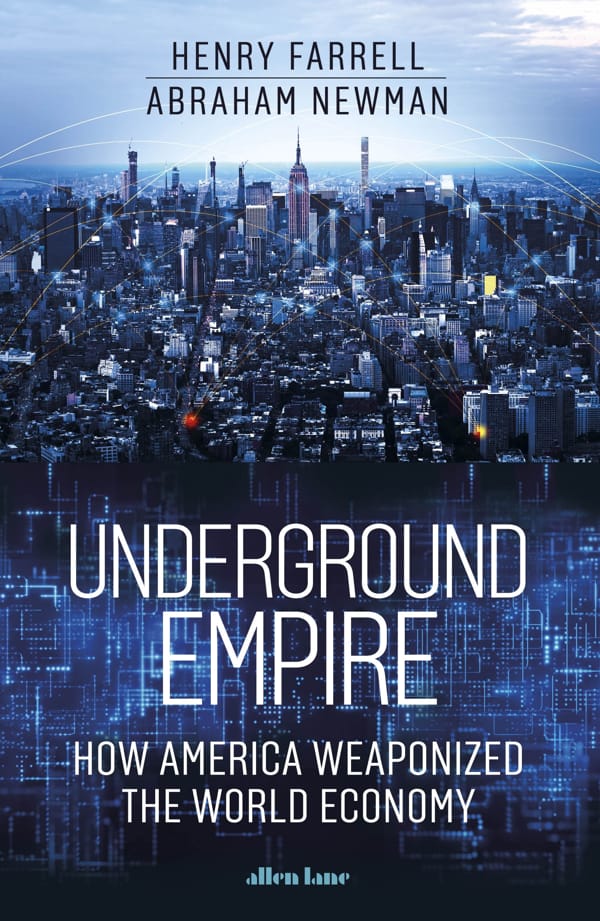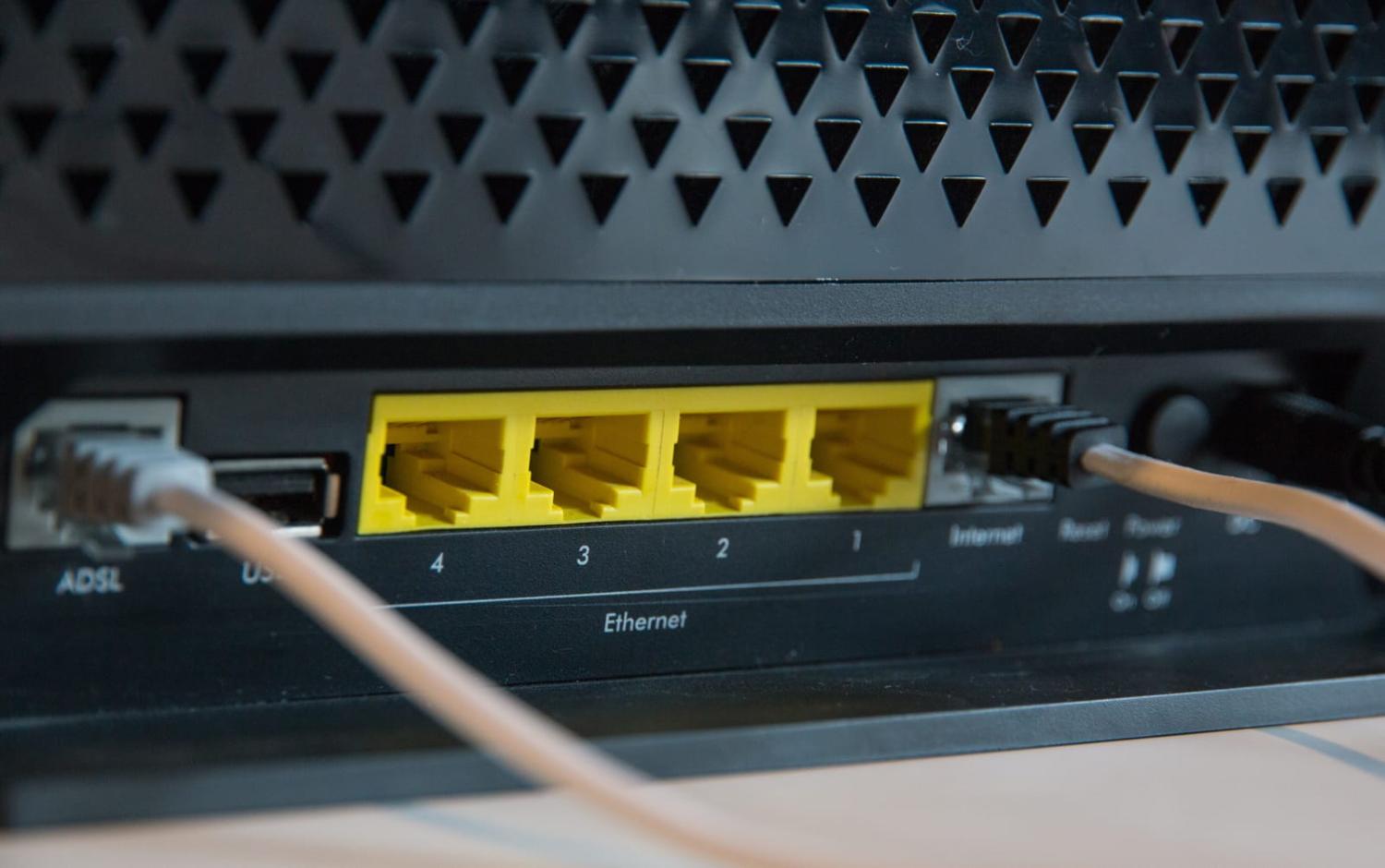Review: Underground Empire: How America Weaponised the World Economy, by Henry Farrell and Abraham Newman (Allen Lane, 2023)
Among foreign-policy thinkers of today, there’s hardly an intellectual pose less fashionable than tech optimism, an attitude that first took hold in the 1990s as the internet spread at the peak of post-Cold War liberal triumphalism. Bill Clinton captured the zeitgeist in 2000, when he said of China’s adoption of the worldwide web:
We know how much the internet has changed America, and we are already an open society. Imagine how much it could change China. Now, there’s no question China has been trying to crack down on the internet. Good luck! That's sort of like trying to nail Jell-O to the wall. But I would argue to you that their effort to do that just proves how real these changes are and how much they threaten the status quo.
How hopelessly naïve this now sounds.
An early indication that the tech boom might not be such a politically liberalising force came in the Arab Spring beginning in 2010. Social media-enabled revolutions arose throughout the Middle East, only to be ruthlessly suppressed. Then we began to learn more about the effectiveness of China’s Great Fire Wall (although The Atlantic’s James Fallows was ahead of the game). In 2013 came the Snowden leaks, when we learned that it wasn’t just one-party authoritarian states practising extensive internet surveillance.
The information revolution was wilting before the power of government. Whether democratic or authoritarian, the state was proving more durable and ruthless than 2000s Bill Clinton would have believed. Techno-optimism never died in Silicon Valley – businessman Mark Andreeson published a widely cited manifesto by that name just last year – but in Underground Empire: How America Weaponised the World Economy, authors Henry Farrell and Abraham Newman attempt to put a stake through its heart.
Underground Empire argues that after the 9/11 attacks, the United States government discovered that it possessed vast and hitherto unexploited powers. Because the infrastructure of our digitised, information rich and globalised economy run either physically through the United States or via systems under American control, it could bring to bear mundane bureaucratic and legal instruments to monitor global financial transfers, lock countries out of export markets, and prevent the transfer of key technologies. These powers were first tentatively used to prevent more terrorist attacks, but now represent a crucial new arena of US dominance.

For readers (like me) who are more used to thinking about power in terms of GDP numbers and defence budgets, this is revelatory. Underground Empire will make you reassess your views about the global balance of power. The “pipes and plumbing of globalisation” – internet cables, server farms, dollarised financial flows, the SWIFT payment system – is all mediated by the United States, which “has slowly but surely turned thriving economic networks into tools of domination”.
The book acknowledges the risks the United States is taking. It may get short-term advantage from manipulating this network but, taking a longer view, it is better off behaving like an umpire overseeing it than a player trying to win the game. Adversaries now have an incentive to seek alternatives. The book points out that Iran, in response to being ruthlessly sanctioned and locked out of the SWIFT payment system, has used proxies, cutouts and cash payments to circumvent US sanctions. At this point the book might have offered a deeper examination of the limits to America’s new dominion. What has American dominance of this realm achieved? Iran and Russia have not bent to Washington’s will, and China is not likely to either. Instead, they will seek to circumvent the system the United States has created.
Underground Empire makes a rather stark judgment about Chinese power: “Unlike the United States, it didn’t control any of the key choke points in the subterranean machineries of the world economy … Judged by the size of its economy, China was a global power. Judged by its influence over global economic networks, it was at best an also-ran.” That may be, but China now has every reason to build alternatives, and even without them, it is the biggest industrial power in the world. The book implies that this means little against America’s control of the “subterranean machinery”, but never quite tells us why.
Underground Empire decisively punctures the naïveté of techno-optimism, but the book might be guilty of some naïveté of its own. Having vividly described Washington’s ruthless use of its new empire to advance its interests, the authors conclude by calling for the United States to reform itself and practise a form of noblesse oblige (“Now, perhaps, the United States could deploy its empire to build a commonwealth …”). But that’s asking a lot of the United States, and understates the agency and determination of its adversaries, particularly China.

